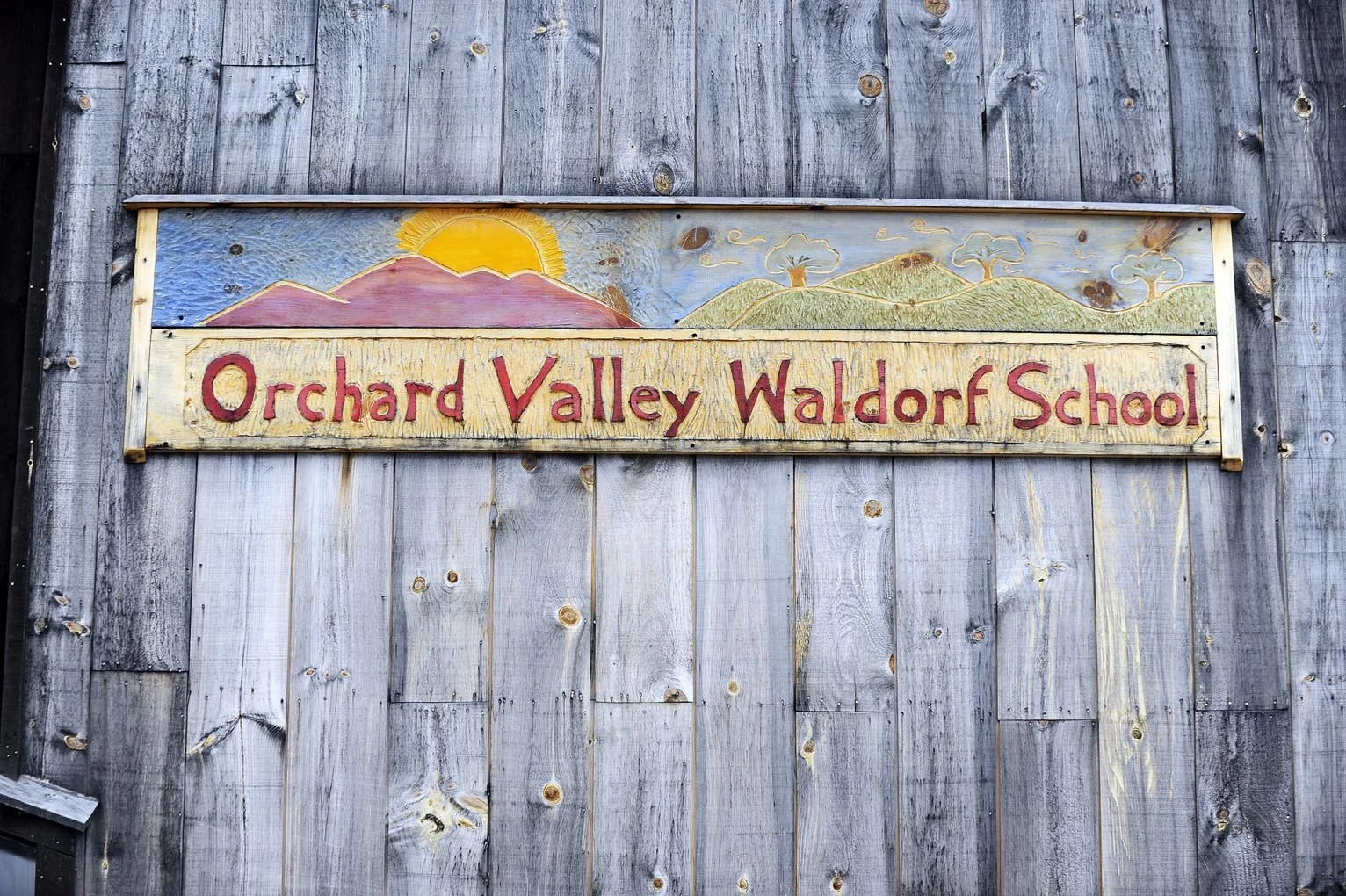From Lindsey Benton, 8th grade teacher
During a typical last week of school, Orchard Valley offers a variety of anticipated end-of-year experiences for its graduating 8th graders. As one last opportunity to move and work together, the 8th grade traditionally challenges faculty to a friendly, yet competitive ultimate frisbee match amidst the cheers and chanting of younger students on the sidelines. Then there is the last day of school, which usually begins with a rose ceremony where 1st graders, who have been working with their 8th grade buddies all year, present their 8th graders with a parting rose. Finally, there is graduation, which is typically been an outdoor celebration on the Kindergarten lawn, complete with a view of the mountains as students and faculty give words of appreciation and congratulations.
Naturally, given the realities of social distancing and remote learning, all of this needed to be re-imagined. It was an opportunity to branch away from how things were traditionally done while upholding the spirit of the tradition itself.
The ultimate frisbee match transformed into a faculty car parade that surprised each 8th grader at their house. The faculty, driving festively painted vehicles, traveled a 227-mile loop throughout Vermont, from Essex, to Waitsfield, to Hyde Park, to Cabot. Indeed, there was a deep appreciation for the commutes families had to make to attend Orchard Valley! Upon arrival, families made sure that their unsuspecting 8th grader was poised and ready to receive their surprise - a visit from the faculty and a frisbee, complete with their name and "Orchard Valley Graduate" written upon it. Each 8th grader caught their frisbee through a cacophony of applause. The faculty officially conceded a win to the 8th grade!
The last day of school rose ceremony was beautifully upheld in a new way by first grade teacher, Dana Cudney, and 2/3rd grade teacher, Lottie Maker. This graduating 8th grade was in a unique position in that they had 1st grade buddies as 7th graders and 8th graders. This meant that on the last day of school they were set to receive roses from 1st grade and 2nd grade buddies. Because this could not happen in real-time in person, Ms. Cudney and Ms. Maker had their students create beautifully drawn cards with roses on the front and personalized notes on the inside. They were all created and collected at school just in time for 8thgraders to pick up their materials on the last day of school. 8th graders melted into smiles when they received these original cards from their 1st and 2nd grade buddies.
Lastly, the graduation ceremony took on an entirely new look this year. Working from the state requirements for graduation ceremonies at the time, it was clear if an in-person gathering was to happen it would need to happen in cars. Therefore, the faculty went all-in on a drive-in themed graduation. A giant, inflatable movie screen was rented. Student and faculty speeches were filmed in advanced on campus and edited into a graduation movie. National Life's parking lot served as the venue.
By the time the day of graduation arrived, state requirements for graduations eased, allowing graduates to stand outside and receive their diplomas as long as they were standing 6 feet apart. In effect, Orchard Valley's graduation ceremony definitely looked different, and it looked sharp! Hand-painted signs and hand-made pinwheels marked the way from Route 2 up to National Life's parking lot. Large tables were placed below the movie screen and were decorated with lights and flowers. Each 8th grader was called forward to a chorus of car horn applause. They each received their diploma and a large gift bag containing a personalized cake, plates, and cutlery. Then everyone settled in to watch the graduation movie, complete with a breathtaking sunset and view of the Green Mountains behind the towering movie screen. It was a magical and uplifting graduation ceremony.
Indeed, in the face of so much upheaval and change in the midst of this pandemic, Orchard Valley did not give up. In fact, the challenges rattled the faculty into a place of intense and inspiring creativity to meet what the times were calling for. Any situation is merely the prompt, the material to work with- the action in response is yours to choose. And, in the end, isn't this the lesson that we want to leave our 8th grade graduates with, that turbulent and uncertain times can be met with courage and ingenuity? This year's 8th graders had a most unusual culmination, but perhaps they left with the most powerful lesson.

